When Jessica Harris learned in early March that she’d won the James Beard Foundation Lifetime Achievement Award honoring her decades of contributions to the food industry and beyond, she was momentarily alarmed.
“At first, you worry: Do they know something about my health?” Harris said with a dry laugh. We spoke by phone as she prepared to leave her house in Brooklyn for her family cottage on Martha’s Vineyard. “A lifetime achievement award seems like a punctuation mark. I think of myself as having so much more that I want to do.”
Once she’d recovered from the initial shock, Harris had a few days to enjoy the honor – “You work yourself around, and then it’s like, ‘This is pretty cool!’” – before the world was turned upside down. Due to the global pandemic, Harris soon found herself quarantined at home, where she lives alone with two cats and stacks and stacks of books. When we spoke, she was on day seventy-four.
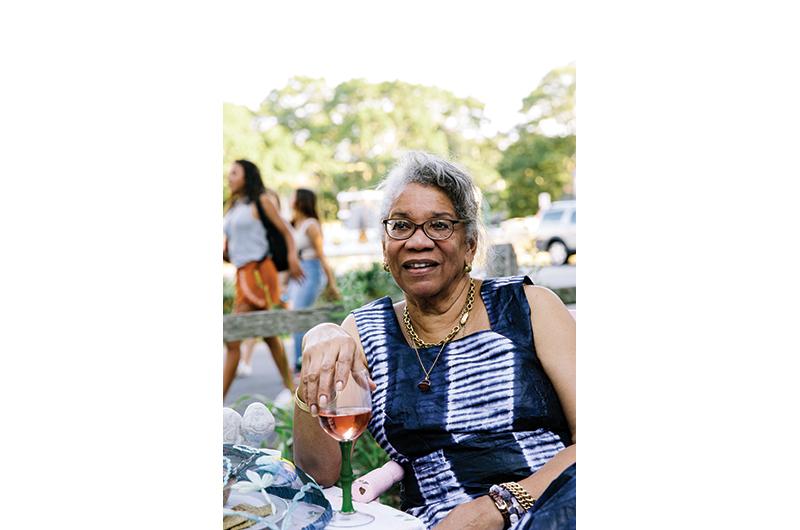
“I’m going to speak fluent cat by the time this is done,” Harris said. “I’ve been outside of my front door exactly three times.”
Though she considered herself lucky to be one of few in the city with a “postage-sized” backyard, she was eager to return to the Island where she has summered for more than sixty-three years. “I look forward to having a front porch,” she said. “I look forward to socially distanced drinks and seeing people. To being in company – that’s what I’ve been missing.”
Harris leads the sort of intellectually curious and professionally sprawling life that doesn’t lend itself easily to one-line biographies. Love food? You may know her as the author of twelve cookbooks, plus an untold number of magazine articles (some of which you’ve seen in this publication), exploring the cross section of food, culinary history, and the African diaspora. Love podcasts? Maybe you’ve heard her on Heritage Radio Network as host of the podcast My Welcome Table. History buff? Perhaps you’ve seen her name at the Smithsonian’s National Museum of African American History and Culture, for which she helped conceptualize and curate the cafeteria. Were you a student in the English department at Queens College at any point in the past fifty years? Chances are good she may have been your professor.
Most recently, the University Press of Mississippi released her latest book, Vintage Postcards from the African World. The coffee table volume is the beautiful and fascinating result of her lifetime as a deltiologist, which, you’ll be forgiven for not knowing, makes her a collector of postcards. Vintage postcards aren’t all that she collects – her cottage in Oak Bluffs is lovingly crowded with stacks of books and notebooks, art and artifacts. But more than things, Harris collects people. People like plumber David Amaral, one among many Islanders Harris has gotten to know over the years, as she’s grown her family of “siblings from another mother” (a lifelong quest for an only child) from the porch of the Oak Bluffs cottage her father purchased in 1957.
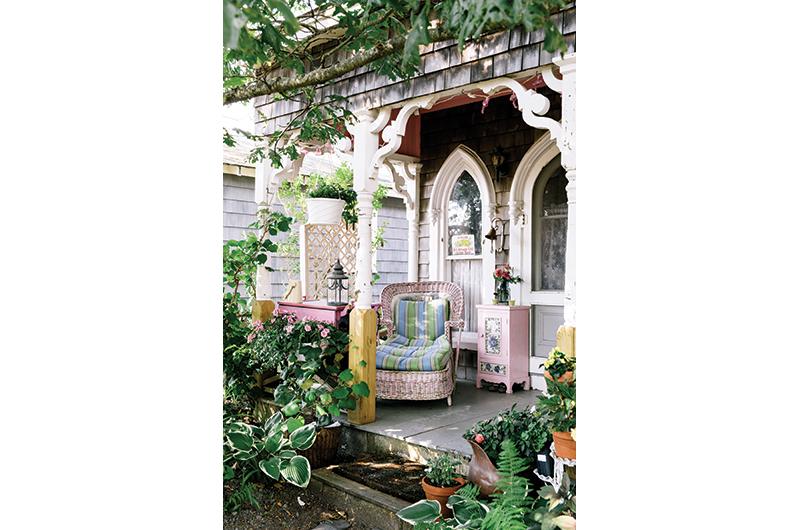
“I call him my sainted plumber,” Harris said, settled into an armchair in the cottage’s front room. It was a transitional day last fall, warm enough for the screen door to be left open but cool enough for the blanket tossed over her feet. (Though the blanket may also have been a prop for the two comfort-seeking cats, Hatshepsut and Hannibal.)
“His father was my father’s plumber,” Harris went on, explaining that the younger Amaral ascended to sainthood after decades of loyalty to the Harris family, reliably being there for Harris’s mother after the death of her father in 1985, and then for Harris, after her mother’s death in 2000.
Amaral. Leonard. McCarthy. Harris lists families of friends and neighbors she’s known since she was a child, driving up to the Vineyard every summer with her parents from their year-round address in Queens. The list reads as a who’s who of the Island in its prime of neighbors helping neighbors, of quaint main streets and “the Island drive,” the up-Island adventure Harris and her parents set out on once or twice each summer.
The Vineyard of Harris’s memories is one that registers more as a hometown than an escape, surprising given that Harris and her parents spent only a few weeks or months here each summer. But deep into a conversation about the many (many) places in which Harris has lived, worked, and studied, it becomes clear that the Island is more than just a yearly stop on her global itinerary. Nonetheless, it’s taken time for the cottage to feel like her own. As we talked, she glanced around and noted which accents and colors had been her mother’s. “My mother was pink,” she said, pointing out some of the upholstery and outdoor shutters, before gesturing to the throw pillows and cushions she’s added into the mix. “My colors are turquoises and blues,” she said. “In some ways I’ve really been making this more my place. For years I’ve been camping in my mother’s place.”
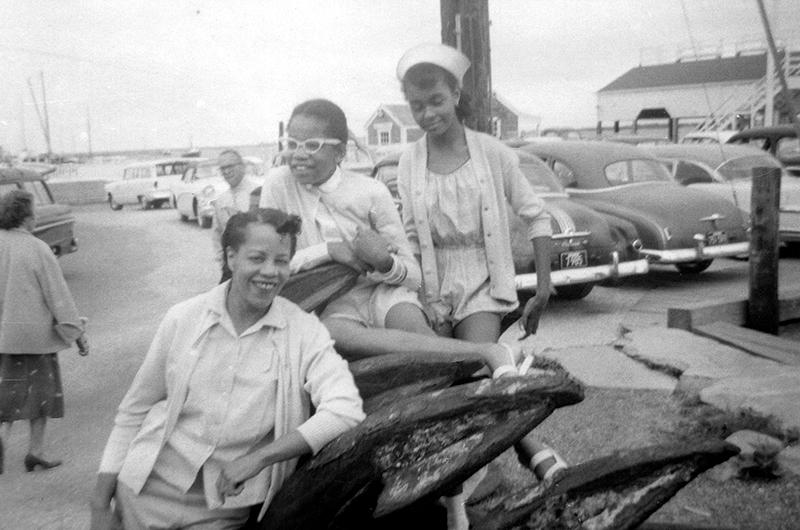
The urge to lay more claim to the Vineyard place may be part of a larger project. “This is a big transition for me,” she said of leaving her position at Queens College in 2018. “I had basically the same job, which was the buttress and underpinning of my life, for the past fifty years. It’s all very much at this point about finding my way.”
Not that being on the go is unfamiliar territory for Harris, who has loved to travel – or dreamed of traveling – since she was a child. “The great apocryphal Jessica story is that we used to live near what’s now Kennedy airport, back when you could go up on the observation deck and watch the planes take off,” Harris remembered. “I’d always say, ‘The next time I come I’m gonna bring a suitcase’ because I thought that was all that was needed to travel. My mother at some point said, ‘Then you started bringing a suitcase and you never stopped.’”
After attending the United Nations International School in New York and visiting Paris with her family, she began a lifetime of globetrotting, first personally and then on professional endeavors. There was a year of study in France, and time spent in West Africa in the ’80s, as she worked on her dissertation on the French-speaking theater of Senegal. It was there that she began focusing her postcard collecting on the African diaspora. As travel editor of Essence magazine she cast her net wider and became immersed in Brazilian and Caribbean food and culture.
All along the way, much as she’s done on the Vineyard, Harris has collected friends, many of whom she is still in touch with today. “I lived with a family in France when I did my junior year. I lost them for twenty years and then went back and found them, and we started talking as if it were yesterday,” she said. “And a couple of years ago I got to introduce my Brazilian family to my African family.”
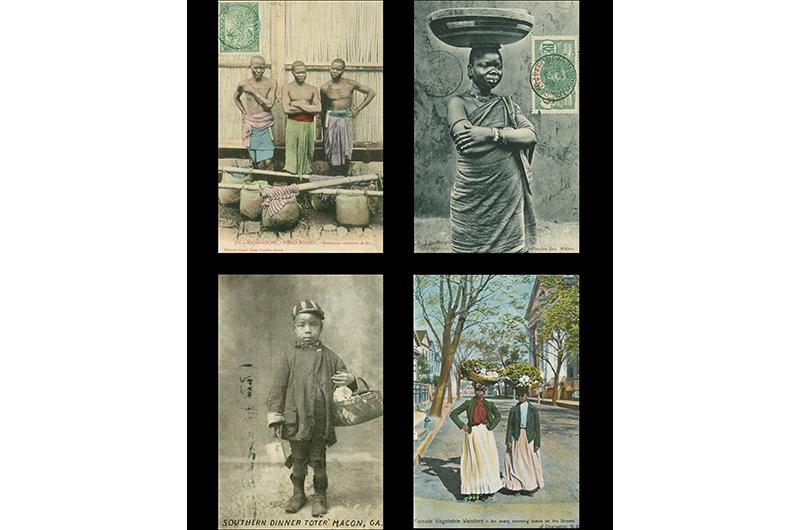
In spite of, or perhaps due to, the global network her love of travel has created, Harris struggles to place herself in the mix of all of the people and places she’s known. “People always say today, ‘Find your tribe.’ I’m still working on my tribe. Ironically my tribe is international, which makes me not really think of it as a tribe. But I have as good or better friends in London or in Bahia or Dakar, Paris for sure, as I do in New York,” she said. “That’s always a little problematic.”
It was, in part, this question of tribal identity that led to Harris’s decision to turn her literary attentions away from food and toward her own story. My Soul Looks Back: A Memoir (Scribner), which came out in 2017, is a personal exploration of her travels and evolution, with emphasis on time spent as part of an intimate group of friends and intellectuals including James Baldwin, Maya Angelou, and, most notably, her partner of many years, Sam Floyd.
Harris’s writing, as evidenced in the narrative passages of her cookbooks, is evocative, lingering on descriptions of epic meals shared with luminaries everywhere from famed West Village haunts to Parisian cafes. Yet she admits it was a struggle to convince the powers that be that, with so many cookbooks under her belt, she was ready to try something new.
“They said, ‘Well, you know, you’re known for food, maybe you should put some recipes in,’” Harris said, remembering conversations she’d had with her editors. “With the memoir I’ve made a leap, and it’s important to maintain the leap, but also to maintain the connection.”
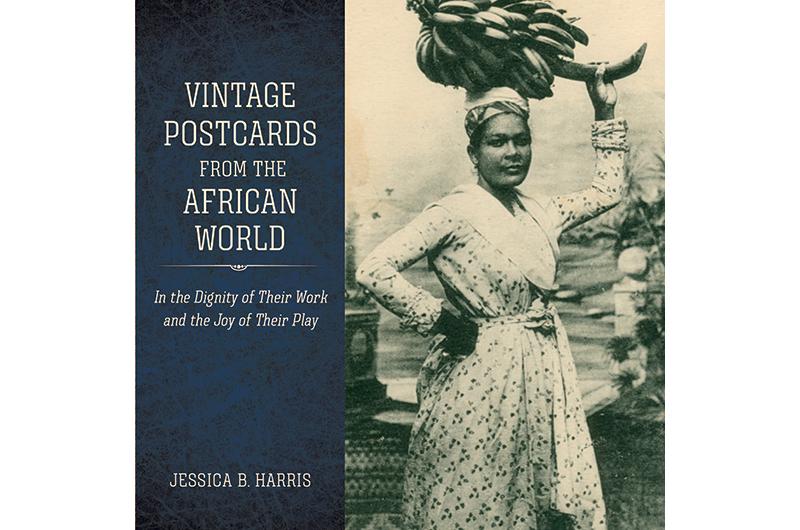
Maintaining a connection to food has always come easily to Harris, who, perhaps as a result of finding herself at the cross section of cultures or just outside of the mainstream, has often used food as a way to gain entry into areas, social or geographical, that have drawn her interest.
“I’ve always been curious,” she said. “I guess that part of being a misfit is you try to figure out how to fit in. And one of the ways that you fit is at the table.”
“Food is a lingua franca,” she said at another point. “It can become a connector. I think that’s why people are so interested in food, and why food becomes so important now. Because we need connectors now more than ever.”
Beyond the family history, this is perhaps why Harris has returned to the Island, year after year, despite being called across continents by work and a network of international colleagues and friends. Long before the locavore movement, and even more so since, the Island has been a place where people connect over food: growing it, cooking it, serving it, gathering around it. Island meals loom large in Harris’s decades’ worth of summer memories, and despite restrictions and restaurant closings, she is eager to gather once again, even from a distance.
“It’s one of my major happy places,” Harris said of the Vineyard over the phone from Brooklyn as we ended our call so she could continue to pack. “I’m looking forward to [getting] back there, quarantine or not. It will change my life. It may, in fact, save it."

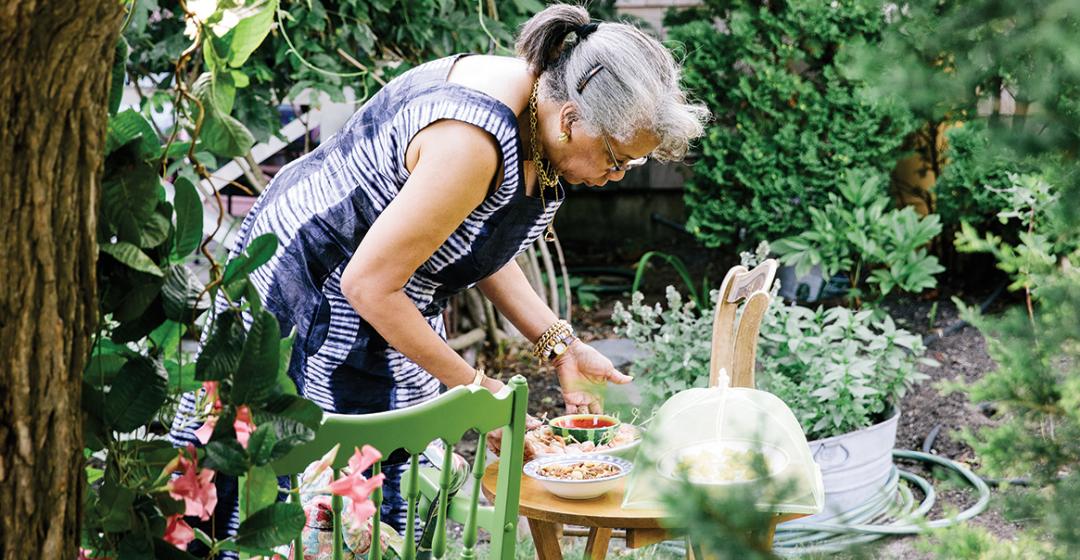


 4 comments
4 comments
Comments (4)